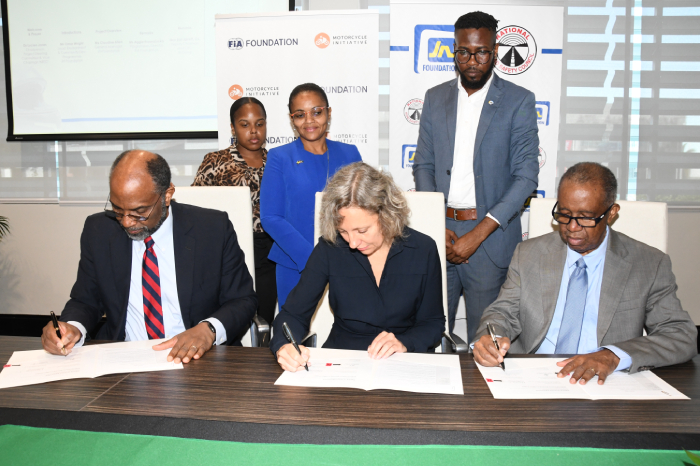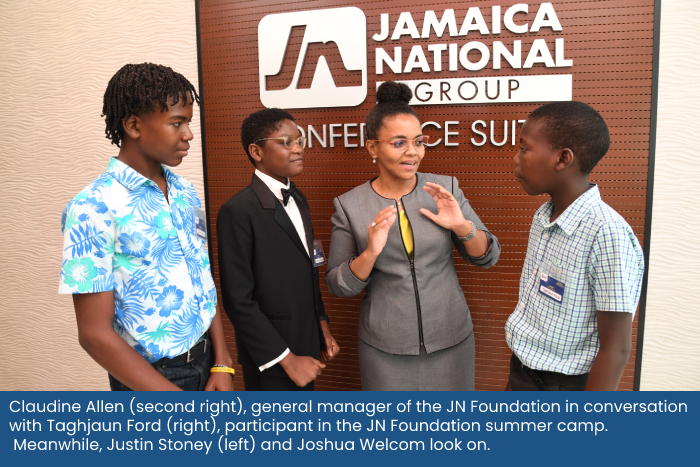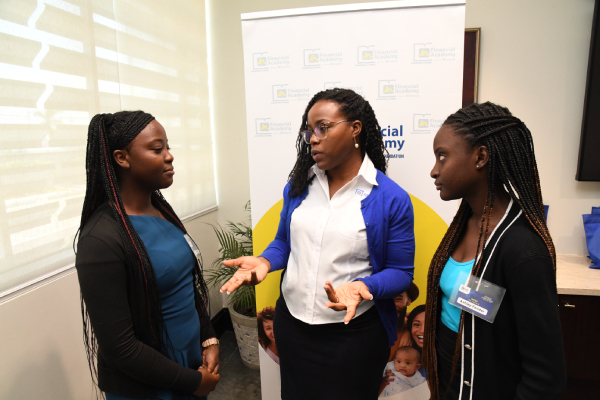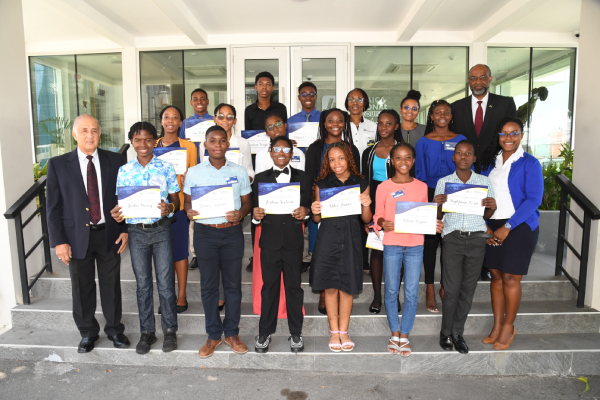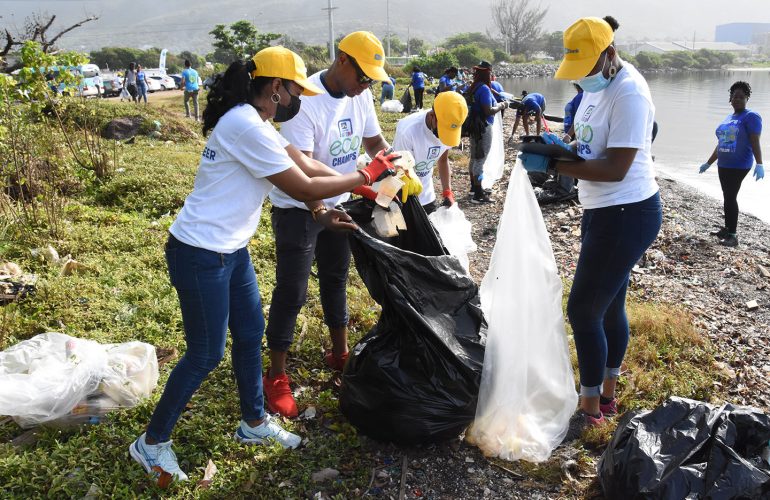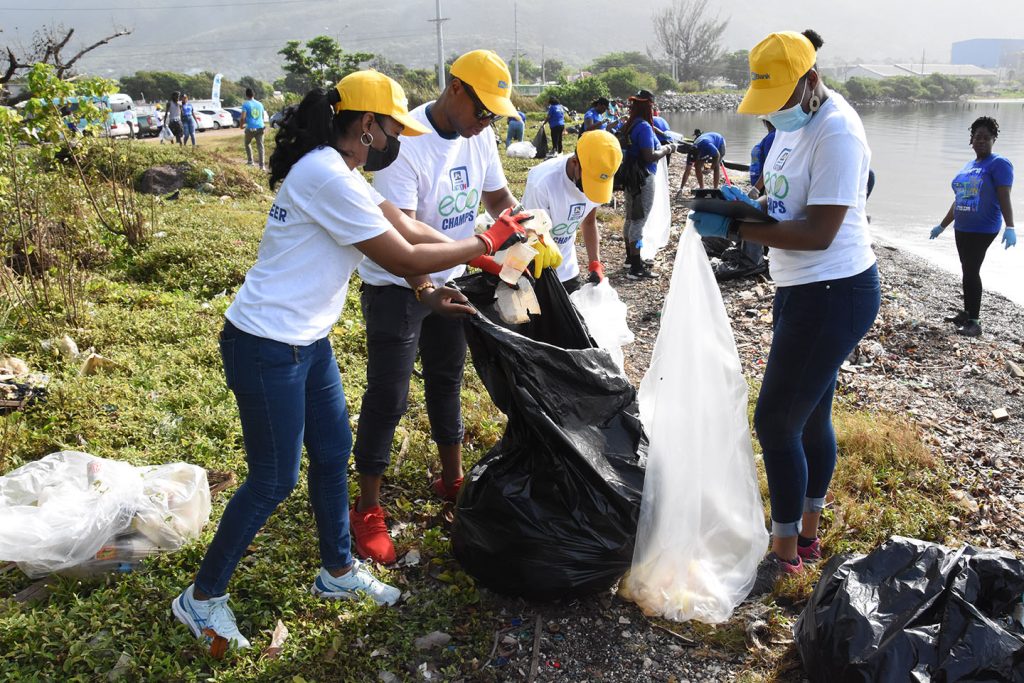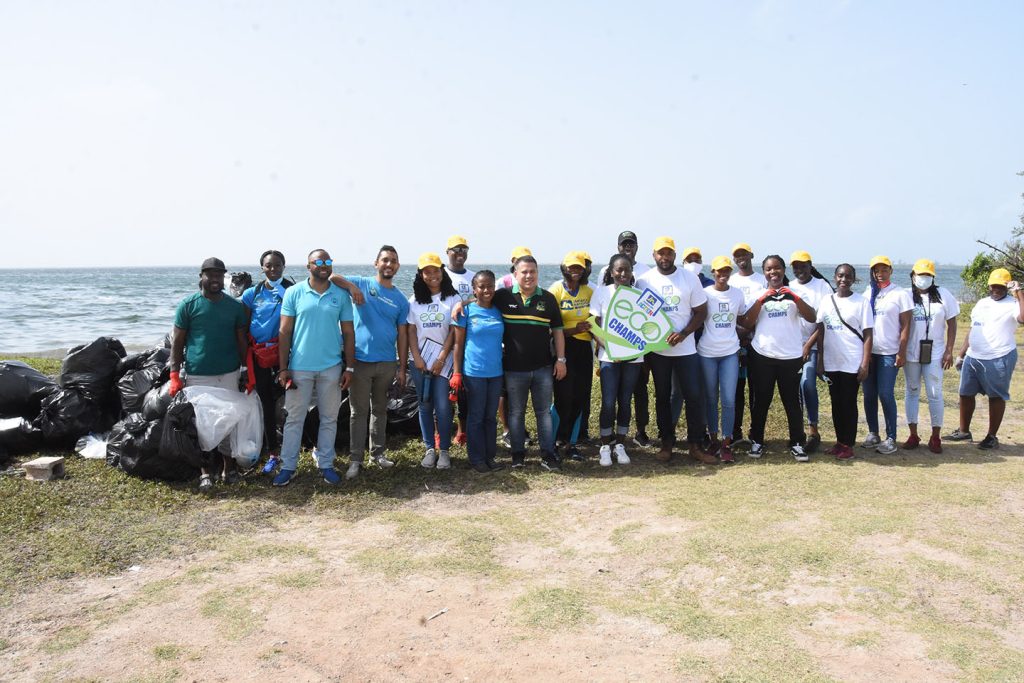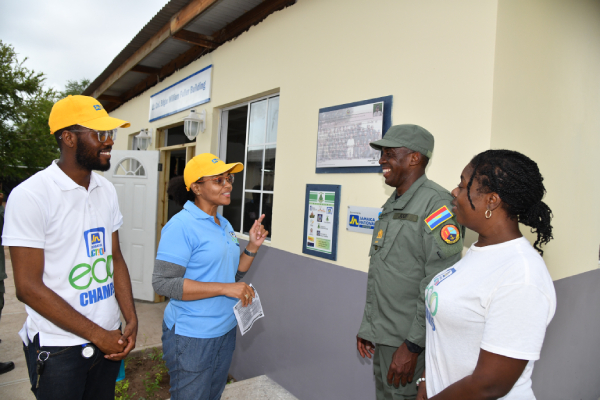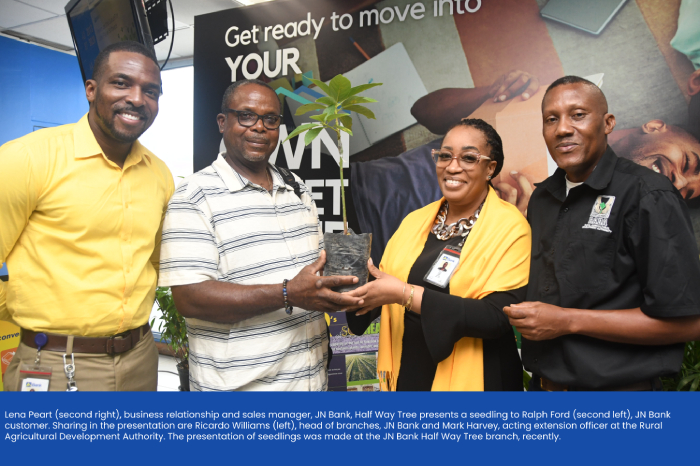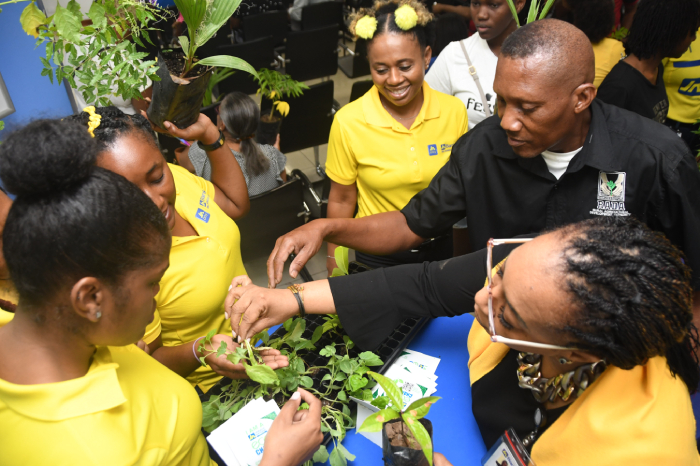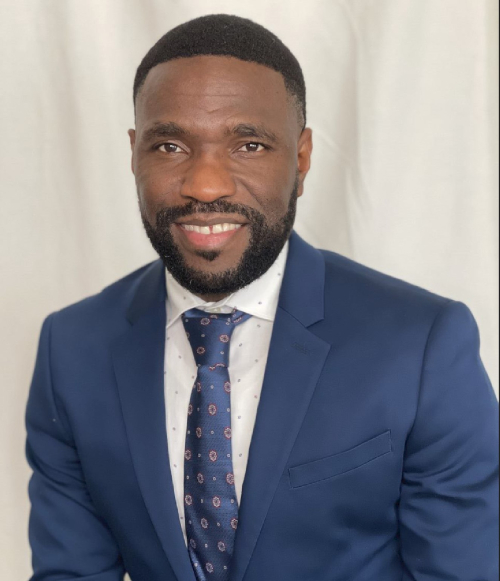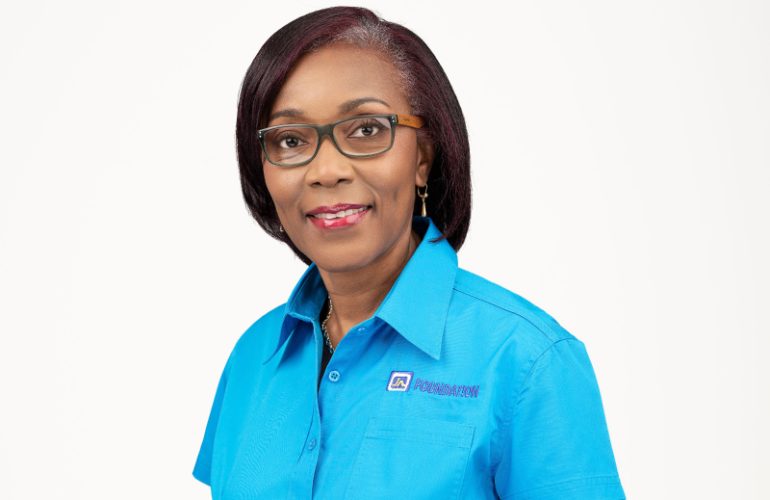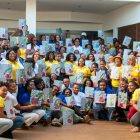National Road Safety Council, JN Foundation and FIA Foundation Sign Agreement to Promote Helmet Wearing
The JN Foundation and the National Road Safety Council, in collaboration with the FIA Foundation, signed an agreement to execute a project which will see the establishment of a National Helmet Wearing Coalition, mandated to advocate for increased helmet wearing among riders and pillions, the use of approved helmets, as well as to stimulate the helmet market.
The agreement for the project was formally signed on Thursday, August 10 by Aggie Krasnolucka, programmes director of the FIA Foundation, who is in the island for the event, Earl Jarrett, chief executive officer and deputy chairman of The Jamaica National Group and Dr Lucien Jones, vice-chairman of the National Road Safety Council.
The three-year agreement, called the National Helmet Wearing Coalition Project will be funded by the FIA Foundation to the tune of $750,000 euro, with supplementary funding from JN Group Limited.
In commending the partnership, Dr Jones said that this is a “landmark partnership that is expected to positively influence road safety promotion especially among bikers. And given the huge numbers of bikers dying every year, and suffering severe head injuries because, inter alia, they are not wearing helmets, the proper execution of the project could be a game changer for road safety in Jamaica.”
Earl Jarrett said the partnership with the National Road Safety Council and the FIA Foundation is a timely one and an agreement that is expected to have far reaching impact.
“The Jamaica National Group, through the JN Foundation, is happy to be part of this agreement. We are a staunch advocate of road safety and preserving lives of road users. We believe that this project, when implemented, will reduce road fatalities among motorcyclists,” he said.
Aggie Krasnolucka of the FIA Foundation said she was happy to be part of this partnership and looks forward to meaningful results emerging.
“FIA Foundation supports the ‘Vision Zero’ approach which seeks to redesign transportation to put people first; to engineer and manage highways, streets and vehicles within a ‘Safe System’ where no death or serious injury is accepted. This agreement today is a testament of our commitment to reduce deaths on our roads globally,” she said.
The first phase of the project will commence with the execution of research to provide a baseline that will inform the work of the project going forward. A comprehensive stakeholder mapping and engagement exercise will be undertaken to examine and understand the current situation relating to helmets and helmet wearing in Jamaica.
This will be followed by the development of an action plan highlighting key milestones and policy objectives that will guide the activities of the National Helmet Wearing Coalition during and beyond the timeframe of the project.
The final phase of the project will see the execution of activities agreed upon by the National Helmet Wearing Coalition, as outlined in the Action Plan. These activities would be informed by phases one and two and implemented through the coalition’s programme of work. As part of the Coalition’s monitoring and evaluation, it may require having working groups and parish committees to drive the execution of activities within the plan.
According to the National Road Safety Council, since 2012, approximately 600 motorcyclists have been killed on Jamaican roads. All were men. Data from the Ministry of Transport and the Jamaica Constabulary Force indicate that these deaths account for approximately 30% of total deaths caused by road crashes in Jamaica over the period, and that over 90% of those who died were not wearing a helmet.
“It is in that context of saving the lives of many young men, thus sparing their families grief and pain, and allowing them to live rich and fruitful lives contributing to national development as outlined in the UN Sustainable Development Goals into which road safety has been inserted, that the NRSC and JN Foundation in partnership with FIA Foundation believe that this project could be a game changer for Jamaica’s future,” said Dr Jones.

